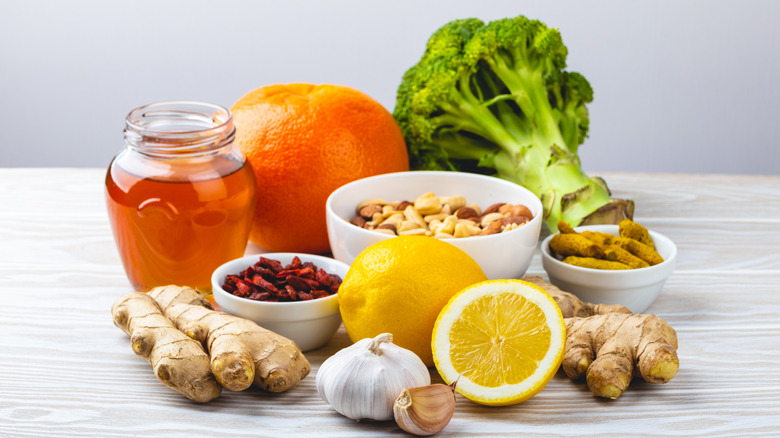Yeast Infection Home Remedies You Should Never Try
Yeast infections are horribly uncomfortable. Anyone who has had one will tell you that they're characterized by painful sex or urination, itching and irritation of the vagina and the vulva, an odorless white discharge that is thick and chunky, and swelling of the vulva. Of course not every yeast infection causes all of these symptoms. But even just a few of these symptoms can be bad enough.
It's easy to see why people would want to seek out home remedies, especially if they are one of the roughly 26.1 million Americans without health insurance (via the US Census). But a yeast infection is not something you want to try and treat at home. Lauren Streicher, M.D., is an associate clinical professor of obstetrics and gynecology at Northern Western University's Feinberg School of Medicine, and when interviewed by SHAPE on this point, she was very clear.
"There are absolutely no home remedies to get rid of yeast infection."
This hasn't stopped some people from trying to find one, however. And it doesn't stop people from pushing one that they think will work, even if there is no science to back it up. Or, in some cases, even if there is science explaining why it won't work. Some of these attempts at home remedies are unfortunately popular, but there are good reasons you shouldn't put them to the test.
The dangers of at-home yeast infection treatments
The most appealing home remedies are those that seem to have their basis in scientific evidence, but unfortunately that evidence is usually limited. The result is a remedy that doesn't work and a yeast infection that goes untreated. And this, as the VA says, can lead to open scratches and infection.
Apple cider vinegar and coconut oil both fall into this category. Shape also interviewed gynecologist Barb DePree, M.D., on why these remedies don't work. While ACV and coconut oil may work against candida which is the same fungus that causes yeast infections, unfortunately, says Dr. DePree, these remedies don't work against the specific candida strain responsible for yeast infections.
Another remedy seemingly backed by science, probiotics, is flawed for different reasons. Dr. DePree explains that the study allegedly proving that probiotics — specifically those found in yogurt — are effective against yeast infections, has glaring issues. The study had no control group, which is the group that doesn't change anything about their behaviors so that researchers can compare their outcome to the outcome of study participants who do change something. A missing control group is a huge issue, one made worse by the study's short observation period and the small number of participants.
There are many other alleged home treatments, but Dr. Streicher said it best: None of them work. If you have one, make an appointment with your OBGYN, rather than trying to treat it on your own.


